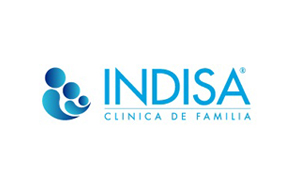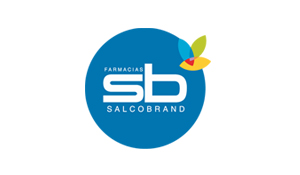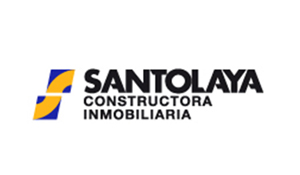The Administrator regarding the Colorado Uniform credit rating Code (the “Administrator”) took Colorado’s longstanding litigation against market loan providers Avant and Marlette up to a brand new level, including as defendants particular securitization trusts which had obtained Avant or Marlette loans. By threatening the purchasers of market loans, the Administrator is escalating the stress on Avant and Marlette – and indirectly the stress on other market lenders that stretch credit to Colorado customers.
Background
The Administrator sued Avant and Marlette in separate actions, alleging that they made loans to Colorado consumers and charged interest rates above the maximum rate allowed by the Colorado Uniform Consumer Credit Code (“UCCC”) as discussed in our prior Clients & Friends Memos (see Marketplace Lending Update #1: Who’s My Lender? and Marketplace Lending Update #2: Another Rocky Mountain Remand. The Administrator asserts that even though loans had been nominally by out-of-state FDIC-insured state-chartered banking institutions (for Avant, Utah’s WebBank, as well as for Marlette, brand brand New Jersey’s Cross River Bank), the “true loan providers” were Avant and Marlette. Although out-of-state banking institutions are allowed to “export” rates of interest and specific costs when creating loans to Colorado customers, exportation liberties try not to connect with entities such as for example Avant and Marlette, because neither is a bank. The Administrator, consequently, contends that the Avant- and Marlette-related pop over here loans meant to Colorado residents must adhere to the UCCC’s limitations on finance costs and costs.
Instead, the Administrator contends that, also presuming the banking institutions had been the “true loan providers” of the Avant and Marlette loans, assignees regarding the loans aren’t able to get the exact same rates of interest and costs permitted to the originating banking institutions, citing the 2nd Circuit’s choice in Madden v. Midland Funding, LLC. 1 underneath the Administrator’s concept, also loans that will have already been appropriate and enforceable whenever made might not always be enforceable by their terms in the possession of of a non-bank holder that is subsequent. This really is an assault regarding the alleged “valid-when-made” doctrine, a concept this is certainly fundamental to your capacity to move loans into the market that is secondary. 2
Efforts early in the day this season to derail the legal actions through elimination to federal court or to look for declaratory judgment relief in synchronous actions in federal court failed.
When you look at the newly amended complaints, the Administrator names as defendants thirty-six securitization trusts (collectively, the “Trusts”) that the Administrator contends had purchased Avant or Marlette loans as well as which either Wilmington Trust, N.A. or Wilmington Savings Fund community, FSB (a nationwide bank and a federal cost savings bank, correspondingly) functions as trustee (collectively, the “Wilmington Trustees”). The Administrator asserts that the Trusts violated the UCCC by getting finance fees and belated costs maybe not authorized because of the UCCC. The Administrator demands that the court purchase the Trusts to disgorge any finance costs or charges gotten beyond those allowed because of the UCCC and:
for each and every credit rating deal since could be determined at test or elsewhere by which a customer had been charged a surplus charge, [to] order[] [Avant or Marlette and also the particular] Trusts to pay for to every such customer a civil penalty based on the Court perhaps not more than the more of either the total amount of the finance fee or ten times the quantity of the surplus cost. 3
Analysis
The Administrator contends that the Trusts are “creditors” underneath the UCCC. The UCCC permits the Administrator to look for charges from any “creditor.” 4 In this regard, “creditor” is thought as:
the vendor, lessor, loan provider, or one who makes or arranges a credit deal also to who the deal is initially payable, or perhaps the assignee of a creditor’s directly to re re re re payment, but utilization of the term doesn’t by itself enforce for an assignee any responsibility of his / her assignor….
Are you aware that penalty of ten times the surplus costs, the UCCC provides:
The court may also order the respondent to pay to the consumers a civil penalty in an amount determined by the court not in excess of the greater of either the amount of the finance charge or ten times the amount of the excess charge if a creditor has made an excess charge in deliberate violation of or in reckless disregard for this code or if a creditor has refused to refund an excess charge within a reasonable time after demand by the consumer or the administrator. 5
The Administrator’s claim for a tenfold penalty is aggressive. Even though the Trusts are “creditors,” the Trusts aren’t plausibly purported to are making a extra cost in “deliberate breach” or “reckless neglect” regarding the UCCC, because it has yet become established that is the “true lender” or whether the UCCC’s limitations on prices and costs connect with the Avant and Marlette loans held by the Trusts. For the exact same explanation, this indicates doubtful that the “reasonable time” has yet passed away. The loans aren’t at the mercy of the UCCC’s limitations on finance costs and belated charges beneath the doctrine of “exportation. in the event that court had been to close out that the “true loan providers” were, in reality, WebBank and Cross River Bank and uphold the valid-when-made doctrine” 6 To need that an entity disgorge loan charges and fees now or face the outlook of being forced to disgorge ten times those amounts later – also with out a judicial dedication if the costs and charges had been illegal–is a tactic that is troubling.
The Administrator’s alternative assertion that the court should follow the next Circuit’s decision in Madden is also more troubling. The Madden choice was widely criticized, including because of the federal banking regulators. The idea that the loan that is same be usurious or non-usurious based on whom has the mortgage at any moment is really a bit ridiculous. In the event that Madden concept had been to prevail, it can not just disrupt the market that is secondary loans, but also devalue such loans currently for a bank’s publications; the financial institution could be not able to offer the loans at such a thing approaching their reasonable market value. The Madden concept additionally operates contrary to the general public policy of protecting customers by apparently suggesting that a usurious and loan that is illegal be manufactured legal–effectively sanitized–merely by attempting to sell the mortgage up to a bank with price exportation authority.
The point is, the filing associated with the amended complaints underscores that the battle throughout the “bank origination model” employed by market loan providers is far from over. Additional market purchasers and warehouse loan providers should continue steadily to approach with care market loans involving customers living in states (such as for example Colorado) where in actuality the bank origination model is under assault, particularly if the prices and costs being charged those customers surpass neighborhood limitations.
1 Madden v. Midland Funding, LLC, 786 F.3d 246, cert. rejected, 136 S. Ct. 2505 (refusing to use the “valid-when-made” doctrine to loans originated with a nationwide bank).
2 For an in depth conversation of Madden therefore the doctrine that is valid-when-made see our previous customers & Friends Memo, It’s a Mad, Mad, Madden World.
3 The Administrator additionally contends that the Avant and Marlette loan agreements violate the UCCC because they include a choice-of-law clause picking a governing law except that Colorado.














Comentarios recientes